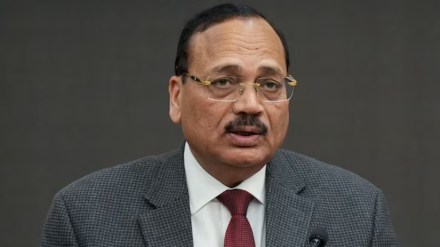Justice Surya Kant, who has been involved in several major Supreme Court verdicts – including the judgments on the removal of Article 370, the Bihar voter list revision and the Pegasus spyware case – will take oath as the 53rd Chief Justice of India, today on November 24. He will take over from Justice B.R. Gavai, who retires this evening.
Justice Kant was named the next CJI on October 30. His term will last for almost 15 months, and he will retire on February 9, 2027, when he turns 65.
Who is Justice Surya Kant?
Born on February 10, 1962, in Haryana’s Hisar district, Justice Kant comes from a middle-class family. He started his career as a lawyer in a small town and rose to the highest judicial office in the country. He has played a key role in many important constitutional cases. He also secured the top rank in his Master’s degree in law from Kurukshetra University in 2011.
Before joining the Supreme Court, he delivered several important judgments in the Punjab and Haryana High Court. He later became the Chief Justice of the Himachal Pradesh High Court on October 5, 2018.
As an SC judge, his judgments have dealt with issues like Article 370, free speech and citizenship rights. He was also part of the presidential reference case that examined the powers of Governors and the President over bills passed by state assemblies – a ruling that is still awaited and could impact several states.
Justice Kant was on the bench that put the colonial-era sedition law on hold, stopping new FIRs under the law until the government completes its review. He also pushed the Election Commission to share details about the 65 lakh voters left out of Bihar’s draft electoral rolls during the Special Intensive Revision.
In a case related to gender justice, he led the bench that reinstated a wrongly removed woman sarpanch and highlighted the gender bias involved. He also ordered that one-third of seats in all bar associations, including the Supreme Court Bar Association, must be reserved for women.
Justice Kant was part of the bench that set up a five-member committee led by former SC judge Justice Indu Malhotra to investigate the security breach during PM Narendra Modi’s 2022 visit to Punjab, stressing that such cases need a “judicially trained mind”.
He also upheld the One Rank One Pension (OROP) scheme for defence personnel and continues to hear cases filed by women officers seeking equal opportunities in permanent commission.
Part of bench revisiting AMU’s minority status
Justice Kant was on the seven-judge bench that overturned the 1967 Aligarh Muslim University ruling, paving the way to reconsider its minority status. He was also part of the bench that heard the Pegasus spyware case and appointed a panel of cyber experts to investigate it, famously saying that the government cannot get a “free pass in the name of national security.”
